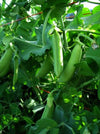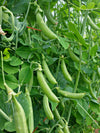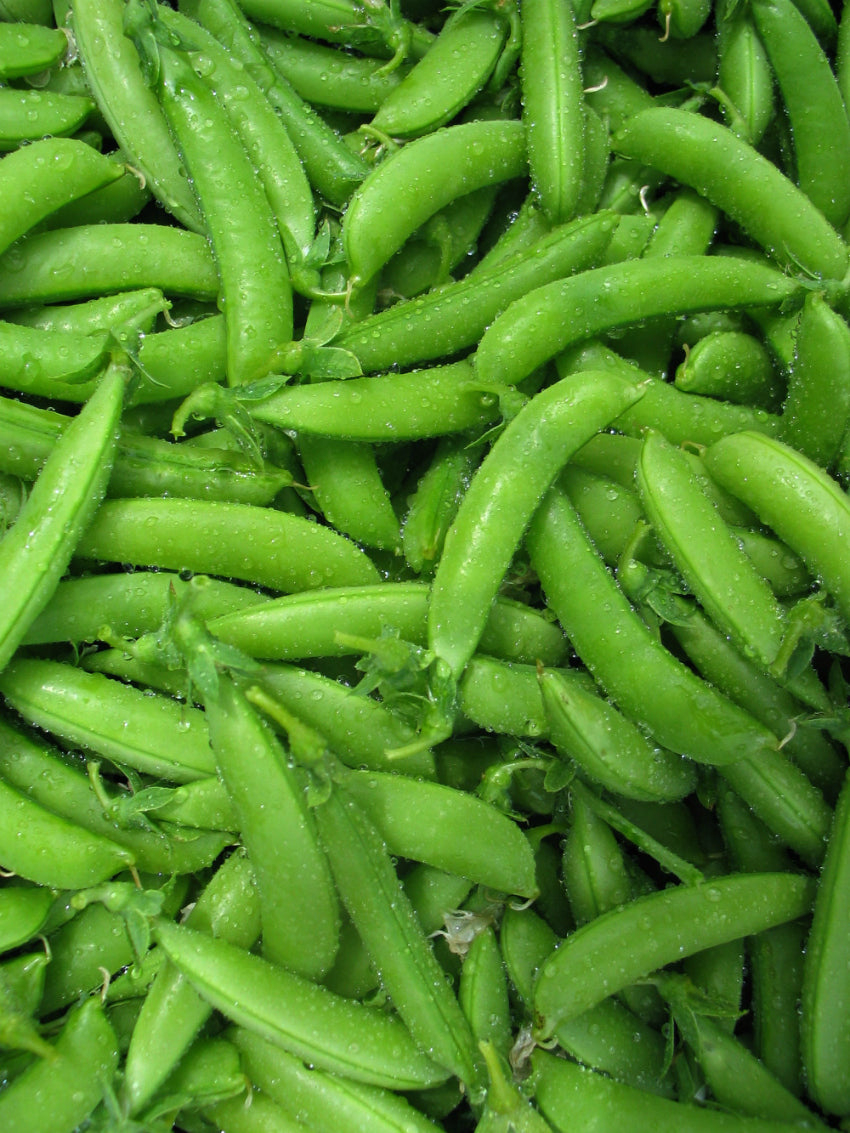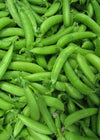Snap Pea, 'Sugar Ann'
(P. sativum) Sugar Ann is our first snap pea out of the garden every year. Dwarf vines grow to only 2’ and do not require support. Medium-sized pods offer excellent sweet eating. Our favorite of the early varieties and deserving of a place in anyone’s garden to celebrate the first peas of the season. Another treasure from the late pea breeder, Calvin Lamborn.
55 days. FF
Packet: 1oz (~120 seeds)
Product Code: PEA-SA-pkt
Availability:In stock
| Translation missing: en.products.general.options | Translation missing: en.products.general.qty | Translation missing: en.products.general.qty |
|---|---|---|
|
$4.50 |
||
|
$9.00 |
||
|
$16.00 |
Growing Info
SOWING:
Seeds can be sown as soon as the soil can be worked in the early Spring. Some people try to push the season even earlier by sowing in flats indoors and transplanting, but we are not those kinds of people (peas don't love to be transplanted). Direct seeding is strongly recommended.
Note: Fully saturated cold soil can cause big fleshy seeds like peas to rot, so waiting for a dryish spell in regions that see a lot of precipitation in the early spring, (like here in the PNW) is recommended for good emergence.
PLANTING DEPTH:
1/2-1"
SPACING:
6-8 seeds per linear foot (thinning further is not generally needed)
EMERGENCE:
5-14 days @ soil temp 50-75F
LIGHT:
Full sun to part shade
FERTILITY:
Low to medium. Peas (and other legumes) are able to produce their own usable nitrogen from atmospheric nitrogen through a symbiotic relationship with bacteria that colonize specialized nodules in their roots. Too much soil fertility can cause excessive vegetative growth at the expense of pod set. High nitrogen can also produce more disease-susceptible plants.
ADDITIONAL NOTES:
It can be quite beneficial to mix pea seeds with commercially available bacterial "inoculants" to encourage the beneficial symbiotic relationship in the growing plant's root nodules, especially if growing on ground that hasn't been planted with peas before. This can increase yields and improve plant health. In gardens or fields where peas have been grown regularly, there are often adequate populations of the beneficial bacteria already present and inoculant isn't necessary.
Provide a trellis for support.
Peas love cool weather! Avoid sowings that will mature in the heat of mid-late summer, as peas will quickly become starchy and tough.
Seed stats
Packet sows approx 6-8 ft




